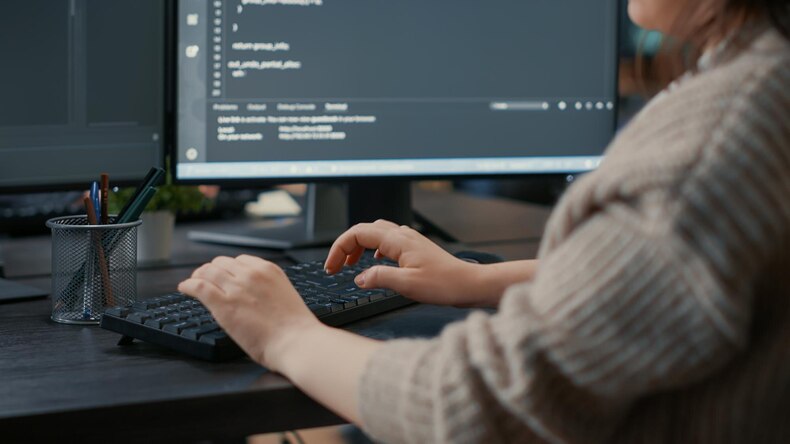The hospitality industry is undergoing a seismic shift, driven by advancements in technology. Artificial Intelligence (AI) is at the forefront of this transformation, reshaping how hotels operate and enhancing guest experiences like never before. Among the many areas impacted, hotel housekeeping services stand out as a prime example of AI’s potential.
Gone are the days when housekeeping relied solely on manual tasks and human oversight. With smart algorithms and innovative tools making their way into cleaning routines, hotels can now streamline operations while maintaining high standards of cleanliness. This evolution not only boosts efficiency but also elevates guest satisfaction—a win-win for everyone involved.
The Role of AI in Housekeeping Services
AI is making waves in hotel housekeeping, reshaping how tasks are managed and executed. Robots equipped with AI can navigate hallways and guest rooms with ease. They handle mundane chores like vacuuming or delivering supplies, freeing up staff for more personalized guest interactions.
Smart scheduling systems analyze occupancy patterns to optimize cleaning times. This ensures that rooms are ready when guests arrive without unnecessary delays.
AI also enhances inventory management by tracking supplies in real-time. Hotels can maintain optimal stock levels, reducing waste and saving money.
Moreover, advanced analytics provides insights into operational efficiency. Housekeeping teams can identify trends and areas needing improvement based on data-driven decisions.
With these innovations, the role of staff evolves from routine task execution to strategic planning and customer engagement, creating a seamless experience for both employees and guests alike.
Benefits of Using AI in Hotel Housekeeping
AI brings a new level of efficiency to hotel housekeeping. With smart algorithms, it can optimize cleaning schedules based on occupancy patterns and guest preferences. This ensures that rooms are serviced at the right time, enhancing guest satisfaction.
Cost savings is another significant advantage. Automating routine tasks reduces labor costs while improving productivity. Staff can focus more on personalized guest interactions rather than mundane chores.
Moreover, AI-powered tools provide real-time data analytics. Managers gain insights into cleaning performance and inventory management, allowing for informed decision-making.
Additionally, enhanced communication systems facilitate smoother coordination among staff members. Notifications about room status or special requests flow seamlessly between departments.
Using AI promotes consistency in service quality across numerous properties within a chain. Guests expect the same level of cleanliness everywhere they stay; AI helps achieve this uniformity effortlessly.
Case Studies: Successful Implementation of AI in Hotels
Several hotels around the world have successfully integrated AI into their housekeeping services. This has revolutionized traditional practices, enhancing efficiency and guest satisfaction.
One notable example is Marriott International. They deployed a robotic vacuum system that operates autonomously in high-traffic areas. The robots not only clean floors but also gather data on foot traffic patterns, helping management optimize cleaning schedules.
Another hotel chain, Hilton, introduced an AI-driven chat interface for housekeeping requests. Guests can send messages through the app to order extra towels or request room cleaning at their convenience. This reduces response time and enhances guest experience.
The Four Seasons has taken it a step further with AI-powered predictive analytics tools. These systems analyze historical data to forecast peak occupancy times, allowing staff to prepare housekeeping teams accordingly.
These case studies illustrate how embracing technology leads to operational excellence while meeting evolving customer expectations.
Challenges and Limitations of AI in Housekeeping Services
While AI brings exciting possibilities to hotel housekeeping, it is not without its challenges. One major concern is the initial investment. Implementing advanced technology requires significant financial resources. Smaller hotels may struggle to afford these upgrades.
Another limitation lies in addressing human touch. Guests often appreciate personalized service from staff who can understand their unique needs and preferences. An over-reliance on AI could lead to a sterile experience that lacks warmth.
Data security also poses risks. With AI systems gathering guest information, protecting this data becomes crucial. A breach could damage a hotel’s reputation and lead to financial loss.
Training staff to work alongside AI tools presents additional hurdles. Employees need time and guidance to adapt effectively, which can disrupt existing workflows during the transition period.
There are concerns about job displacement as automation increases within the industry, creating anxiety among employees about their future roles.
Conclusion: Embracing the Potential of AI in Hotel Housekeeping
The hospitality industry is undergoing a remarkable transformation, and artificial intelligence is at the forefront of this change. Hotels are beginning to recognize the immense potential that AI holds for enhancing housekeeping services. From improving efficiency to elevating guest satisfaction, the benefits are clear.
As hotels embrace these technological advancements, they have the opportunity to streamline operations and reduce costs while still maintaining high service standards. Implementing AI solutions can lead to better resource allocation, allowing staff to focus on more personalized guest interactions rather than routine tasks.
Despite some challenges in integrating new technologies into existing systems, many hotels have already taken significant strides toward adopting AI-driven approaches. They demonstrate how successful implementation can pave the way for a brighter future in hotel management.
The journey towards fully harnessing AI’s capabilities in housekeeping services has just begun. By remaining open-minded and proactive about exploring innovative solutions, hotels can not only meet but exceed evolving guest expectations in an increasingly competitive market. Embracing this technology could very well redefine what it means to provide exceptional hospitality experiences.
